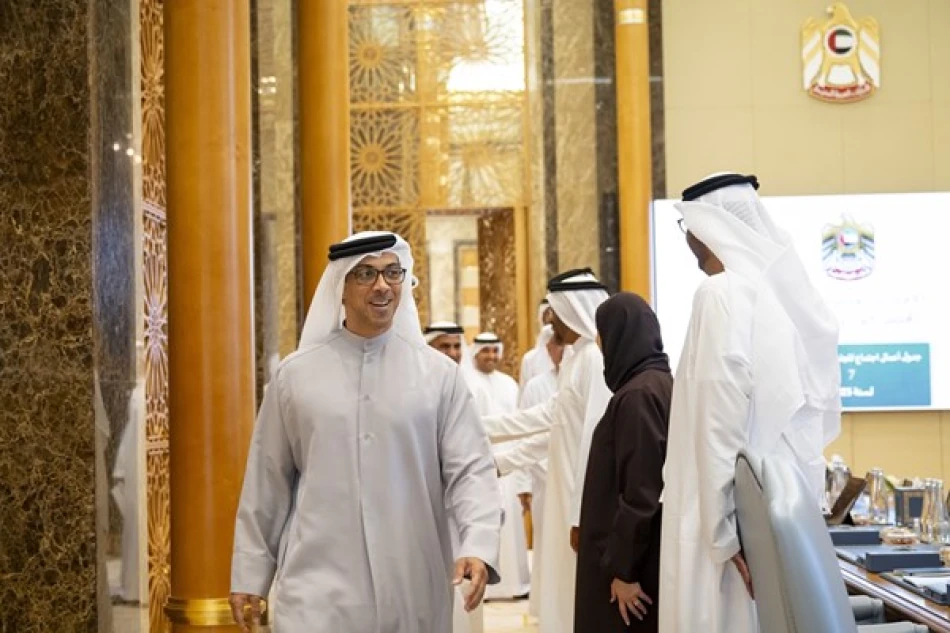
Mansour bin Zayed Leads UAE Development Cabinet, Unveils Policies and Organizational Decisions
UAE Pushes Bold Policies to Boost Birth Rates and Economic Competitiveness
The UAE's top leadership is tackling one of the nation's most pressing demographic challenges head-on. Sheikh Mansour bin Zayed Al Nahyan led a high-level government meeting in Abu Dhabi that discussed new policies to boost the country's birth rates while strengthening economic competitiveness across multiple sectors. The move signals how Gulf states are adapting their governance strategies to address long-term population and economic sustainability.
Birth Rate Crisis Takes Center Stage
The Ministerial Council for Development spent significant time reviewing recommendations from the Federal National Council on policies designed to increase fertility rates. This isn't just demographic planning – it's economic survival strategy.
The UAE faces the same challenge hitting wealthy nations worldwide: declining birth rates that threaten future workforce stability. With expatriates making up roughly 90% of the population, the country needs more Emirati citizens to maintain cultural identity and reduce dependency on foreign labor.
Other Gulf states are watching closely. Saudi Arabia launched its own family support programs in 2022, while Qatar has been experimenting with childcare incentives since 2020. The UAE's approach could set the regional standard.
Multi-Sector Reform Strategy
Education and Workforce Alignment
The council reviewed policies to improve education quality and labor market efficiency. This makes sense – better schools and job prospects encourage families to have more children. Singapore used similar tactics in the 1990s, though with mixed results.
The focus on "enhancing competitiveness of national products" suggests the UAE wants to create more high-value jobs for citizens, making family formation more economically viable.
Government Efficiency Push
Officials discussed initiatives to improve government performance and federal finances. Streamlined bureaucracy typically means faster implementation of family support programs and better resource allocation.
The meeting also covered regulatory decisions across family services, energy, and civil aviation sectors. This comprehensive approach indicates serious commitment to structural change.
Why This Matters for Markets and Investors
Birth rate policies have real economic implications. Countries that successfully boost fertility often see increased domestic consumption, housing demand, and infrastructure investment over 10-20 year periods.
For investors, this signals potential opportunities in education technology, healthcare services, and family-oriented retail sectors. Real estate developers should pay attention – more families mean different housing needs.
The UAE's focus on national product competitiveness also suggests continued efforts to reduce oil dependency and build knowledge-based industries. This could benefit fintech, logistics, and manufacturing sectors.
Regional Leadership Test
The UAE often pioneers policies that other Gulf states later adopt. If these birth rate initiatives work, expect similar programs across the region. If they fail, it could signal that wealthy oil states need fundamentally different approaches to demographic challenges.
The government's reorganization of health and environmental responsibilities shows they're thinking systemically about population growth – not just offering cash incentives, but creating supportive infrastructure.
Success here could position the UAE as the Gulf's demographic policy leader, while failure might force a rethink of the entire expatriate-heavy development model that built modern Gulf economies.
Most Viewed News

 Layla Al Mansoori
Layla Al Mansoori






